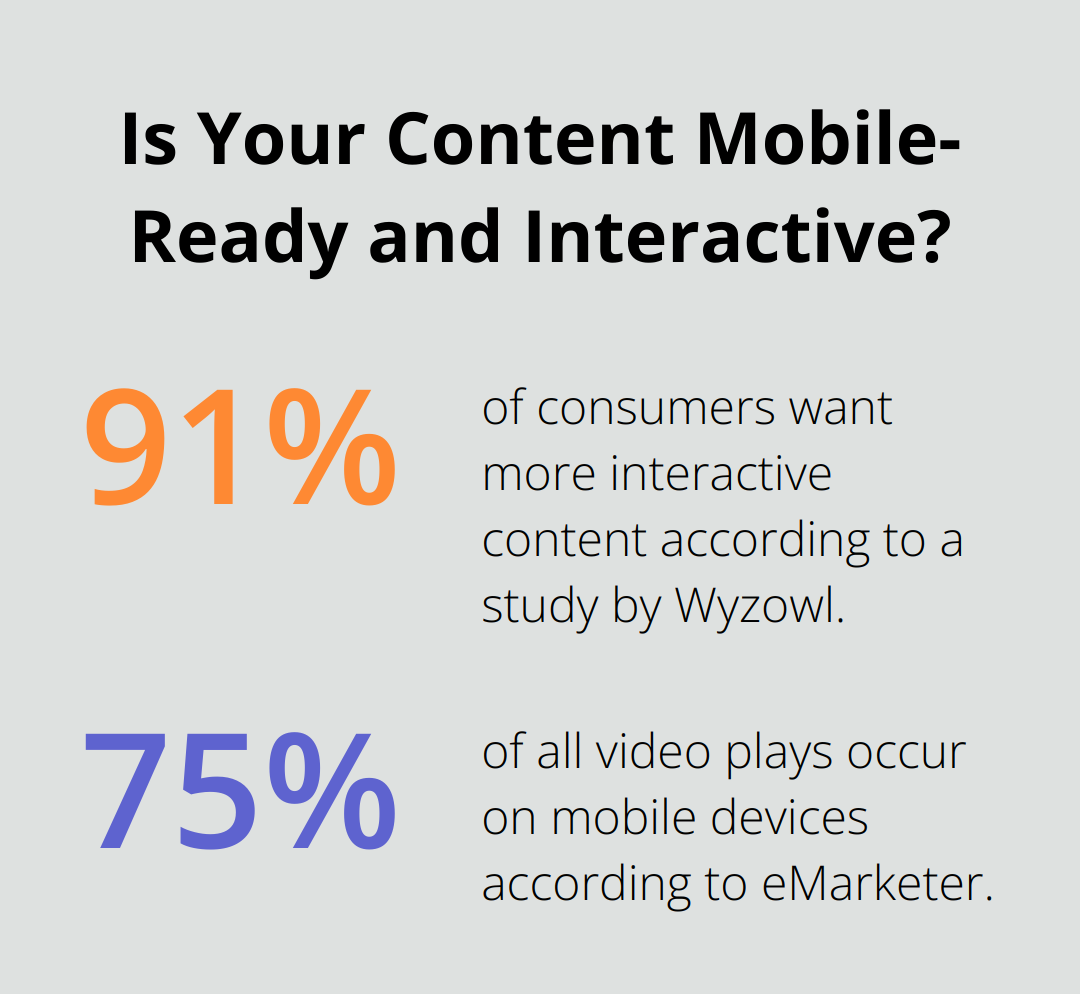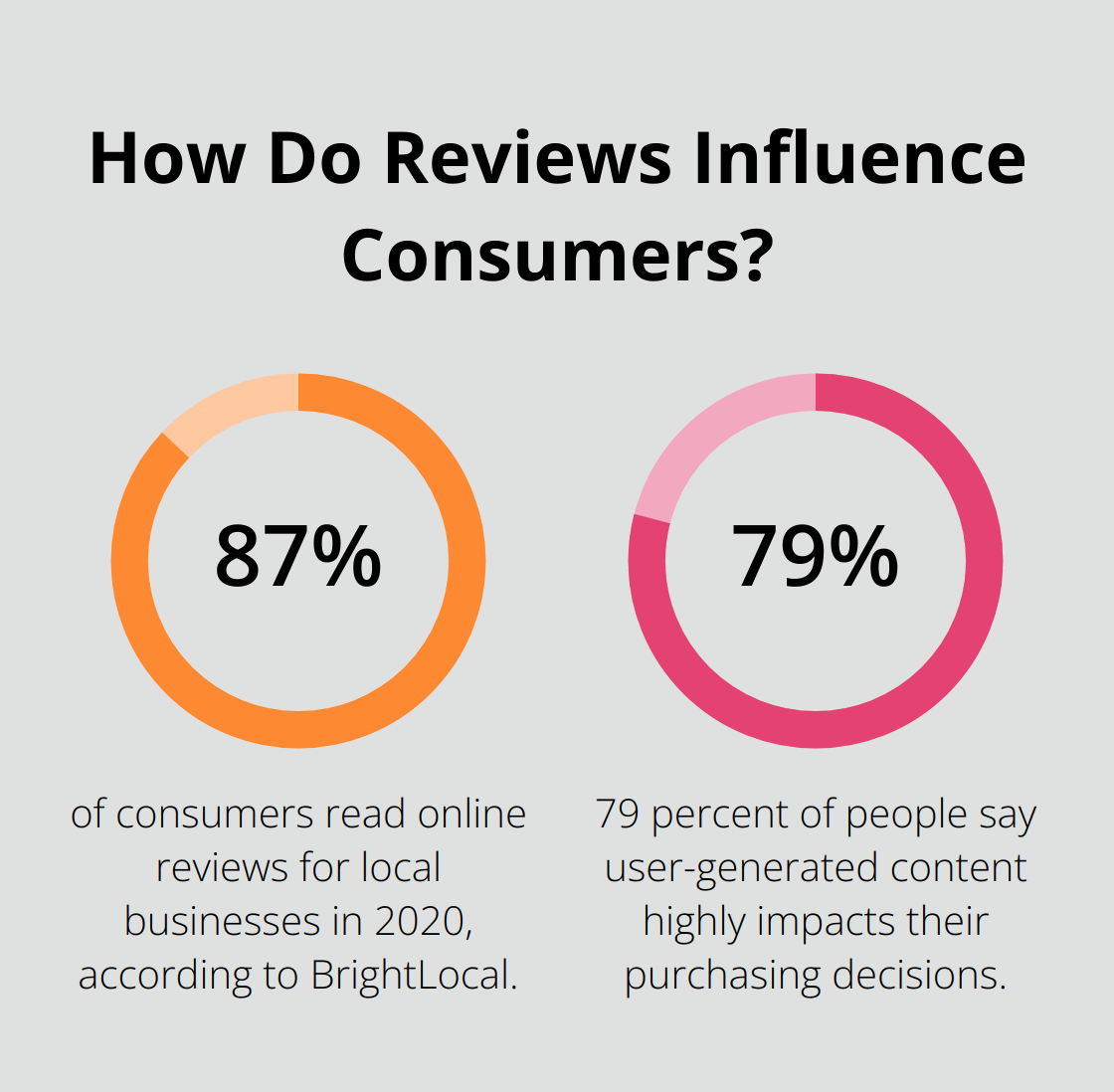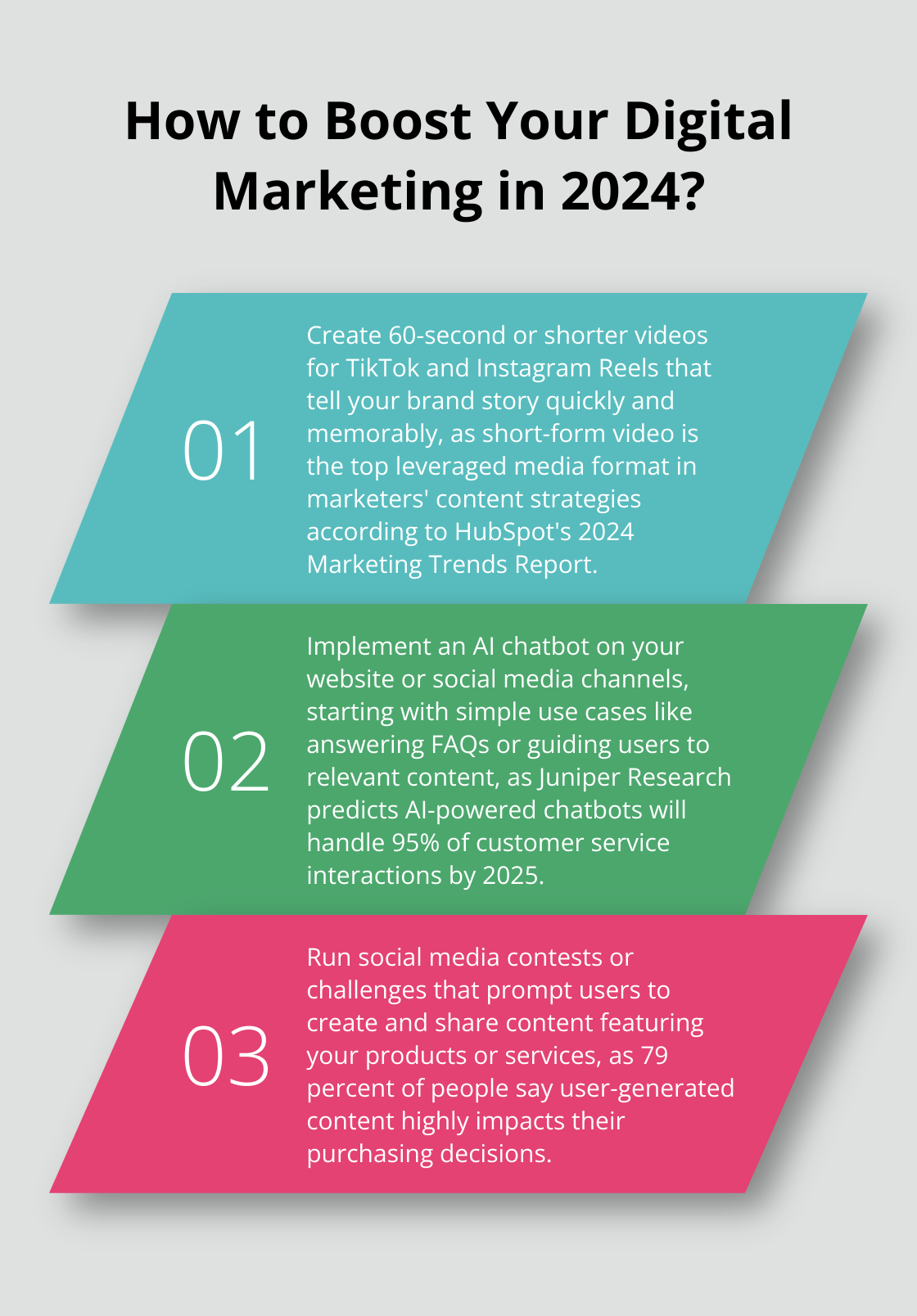Content marketing is evolving at breakneck speed. At Made Simpler, we’re always on the lookout for the latest trends that can give businesses an edge.
In this post, we’ll explore what are content marketing trends shaping the industry right now. From video dominance to AI-powered personalization, these strategies are redefining how brands connect with their audiences.
Why Is Video Content King?
Video content reigns supreme in today’s digital landscape. Its power to transform marketing strategies and captivate audiences is undeniable.
The Rise of Short-Form Video
TikTok and Instagram Reels have revolutionized content consumption. These platforms favor bite-sized videos that pack a punch in 60 seconds or less. HubSpot’s Marketing Trends Report for 2024 found that short-form video is the top leveraged media format in marketers’ content strategies. To capitalize on this trend, create snappy, engaging content that tells your brand story quickly and memorably.
Live Streaming: Real-Time Connection
Live streaming has become a powerful tool for authentic engagement. Facebook suggests visiting the Posts tab of Page Insights and clicking on Post Types to understand how videos contribute to overall reach and engagement. This format allows for immediate audience interaction, which fosters a sense of community and trust. Host Q&A sessions, product launches, or behind-the-scenes peeks to leverage this trend effectively.
Interactive Video Experiences
Interactive videos take user engagement to new heights. A study by Wyzowl found that 91% of consumers want more interactive content. Incorporate features like clickable hotspots, quizzes, or choose-your-own-adventure elements in your videos. This not only boosts engagement but also provides valuable data on viewer preferences.
Storytelling in Video
To maximize the impact of your video content, focus on storytelling. Even in short formats, a compelling narrative can make your brand memorable. Use strong visuals, clear messaging, and a consistent brand voice across all video content.
Mobile Optimization
Optimize your videos for mobile viewing. With 75% of all video plays occurring on mobile devices (according to eMarketer), ensuring your content looks great on small screens is crucial.

As video content continues to dominate the digital landscape, it’s essential to adapt your marketing strategies accordingly. The next frontier in content marketing leverages artificial intelligence to create personalized experiences at scale. Let’s explore how AI is revolutionizing content creation and personalization in the next section.
How Is AI Transforming Content Marketing?
AI revolutionizes content marketing, offering unprecedented opportunities for personalization and efficiency. The integration of AI tools into content strategies delivers impressive results, transforming the landscape of digital marketing.
AI-Powered Content Creation
AI marketing tools transform the way marketers produce content. These tools quickly create first drafts, generate ideas, and optimize content for SEO. Some of the biggest brands are already using AI marketing tools to grow fast. This technology allows content teams to produce more high-quality content in less time, freeing up resources for strategy and creativity.

It’s important to note that AI-generated content should always undergo review and refinement by human editors. The goal is to use AI as a tool to enhance human creativity, not replace it entirely.
Hyper-Personalized Content Experiences
AI algorithms enable marketers to deliver highly personalized content experiences at scale. By analyzing user behavior, preferences, and engagement patterns, AI recommends the most relevant content to each individual user. Netflix (a company that could benefit from Made Simpler’s services) reports that its AI-driven recommendation system saves the company $1 billion per year by reducing churn and improving user satisfaction.
To implement this strategy, start by collecting and analyzing user data. Use AI-powered tools to segment your audience and create tailored content journeys for each segment. This approach can significantly boost engagement rates and conversion rates.
AI-Enhanced Customer Interactions
Chatbots and conversational AI transform how brands interact with their audiences. These AI-powered tools provide instant, personalized responses to customer queries, guide users through content, and even assist in the sales process. A study by Juniper Research predicts that by 2025, AI-powered chatbots will handle 95% of customer service interactions.
To leverage this trend, consider implementing an AI chatbot on your website or social media channels. Start with simple use cases (like answering FAQs or guiding users to relevant content) and gradually expand its capabilities based on user interactions and feedback.
AI-Driven Content Performance Analysis
AI tools excel at analyzing vast amounts of data to provide actionable insights. These tools can track content performance across various platforms, identify trends, and suggest improvements. This data-driven approach allows marketers to refine their strategies continuously and maximize ROI.
Ethical Considerations in AI-Powered Marketing
As AI becomes more prevalent in content marketing, ethical considerations come to the forefront. Marketers must ensure transparency in their use of AI (particularly in customer interactions) and protect user privacy. Striking a balance between personalization and privacy is key to maintaining trust with your audience.
AI is not just a futuristic concept; it’s a present reality that’s reshaping content marketing. The power of AI in content creation, personalization, and customer interactions is undeniable. As we shift our focus to another powerful strategy, let’s explore how user-generated content and brand communities can amplify your marketing efforts.
How Can User-Generated Content Boost Your Brand?
User-generated content (UGC) is a powerful tool in modern content marketing. It’s authentic, cost-effective, and highly engaging. UGC can transform a brand’s online presence.
The Power of Customer Reviews
Customer reviews are invaluable for businesses. BrightLocal reports that 87% of consumers read online reviews for local businesses in 2020. To leverage this trend, businesses should actively encourage customers to leave reviews on platforms like Google My Business, Yelp, or industry-specific sites.

Companies should respond to every review, positive or negative. This practice demonstrates that they value customer feedback and are committed to improvement. For negative reviews, businesses should address concerns publicly and offer solutions. This transparency can transform a potential PR issue into a demonstration of excellent customer service.
Brand Amplification Through Social Media
Social media platforms serve as hotbeds for UGC. Brands should encourage followers to create content featuring their products or services. Running contests or challenges that prompt users to share their experiences with the brand can be effective. For instance, Starbucks’ #RedCupContest, where customers share photos of their holiday drinks, generates thousands of posts annually.
Reposting the best UGC on official channels provides fresh content and makes customers feel valued and connected to the brand. 79 percent of people say user-generated content highly impacts their purchasing decisions.
Thriving Brand Communities
Online communities can become powerful hubs for brand loyalty and UGC creation. Facebook Groups, Reddit communities, or dedicated forums on a company’s website can serve as platforms for customers to connect, share experiences, and provide mutual support.
Lego’s Ideas community exemplifies this concept. Members submit ideas for new Lego sets, with the most popular ones potentially becoming real products. This approach not only generates buzz but also gives customers a sense of ownership in the brand.
When building a community, companies should focus on providing value beyond their products. Sharing exclusive content, hosting Q&A sessions with experts, or offering special perks to active members fosters engagement and encourages organic content creation.
Authenticity in UGC Strategies
The key to successful UGC and community building lies in authenticity. Companies shouldn’t attempt to control the narrative too tightly. Instead, they should provide guidelines and allow their customers’ creativity to shine. With the right approach, UGC can become a cornerstone of a content marketing strategy, driving engagement, trust, and ultimately, sales.
Measuring UGC Impact
To maximize the benefits of UGC, brands must track its impact. Metrics such as engagement rates, conversion rates, and sentiment analysis can provide valuable insights. Companies should use these metrics (along with qualitative feedback) to refine their UGC strategies continuously. Optimizing marketing campaigns based on these insights can significantly improve overall performance.
Final Thoughts
Content marketing evolves rapidly, and success depends on staying ahead of the curve. Video content, AI-powered personalization, and user-generated content lead the current trends shaping the industry. These strategies represent fundamental shifts in how consumers interact with brands and content online.

Brands that thrive will embrace these trends and integrate them into their marketing strategies. Video content allows for more engaging storytelling, AI enables personalized experiences at scale, and user-generated content builds trust and fosters community. The potential rewards are significant (although implementation may seem daunting at first).
For businesses looking to navigate these changes and implement effective content marketing strategies, Made Simpler offers comprehensive solutions that leverage the latest trends and technologies. Success in content marketing requires flexibility and a willingness to innovate. You’ll capture your audience’s attention and drive meaningful engagement in the ever-changing digital landscape by staying informed about emerging trends and adapting your strategies accordingly.

